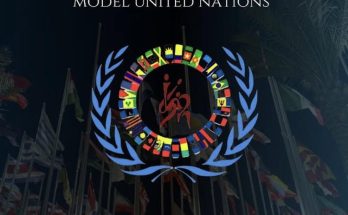 A news item likely to go unnoticed by most is that of a university in Hungary making a course on the Holocaust compulsory for all undergraduate students. It is not the content of the course (which is no doubt very important for a discussion on its possible impacts) but a larger context of remembrance- how it shapes national consciousness and its international ramifications- that this article deals with.
A news item likely to go unnoticed by most is that of a university in Hungary making a course on the Holocaust compulsory for all undergraduate students. It is not the content of the course (which is no doubt very important for a discussion on its possible impacts) but a larger context of remembrance- how it shapes national consciousness and its international ramifications- that this article deals with.
Recently, the Peter Pazmany Catholic University, one of the oldest and most prestigious universities in Hungary, made a course on the holocaust, titled ‘The Holocaust and its Remembrance’, compulsory for all students in its undergraduate program. It’s the kind of news report that is likely to go unnoticed by most, but such an initiative deserves closer reflection and need to be placed in the larger context of remembrance – how it shapes national consciousness and its international ramifications.
Hungarian Jews, too, suffered terribly during the Second World War, with several thousand being sent to Auschwitz-Birkenau concentration camps, into forced labour camps and summarily executed on the banks of the Danube.
Shaping the National Self
A debate on whether there is virtue in trying people (down) to their roots or unburdening from the past is inconclusive. What is certain, however, is that the current generation has a limited (and perhaps diminishing) understanding of major events of the past century which changed the world in a fundamental way – by making the modern nation state the mode of political organization globally.
It has been argued that nations are imagined communities; rather fragile entities, put together by highlighting imagined or existing cultural facts. Rallying points for national identity, creating simultaneously a Self and the Other, have been used to mobilize people for a ‘national’ cause. And what fuels a ‘national’ spirit in this case, then can be influenced, and is not a given.
How the past shapes the present
Remembrance (which by its nature shall be selective), has immense social value then, in shaping the consciousness. The ‘never again’ attitude with regard to horrors of modern history like Hiroshima and the Holocaust, has to be cultured, curated and cultivated. They then shape a distinct aspect of national identity, for instance a pacificist state in Japan (though now changing) and a Jewish home for Israelis. These identities then extend on their conduct in the international arena, wherein they take stands in international issues and form alliance in consonance with these identities (for example, Japan’s strong stances against nuclear weapons).
Remembrance, and of what
A constant recalling of the past is essential in holding on to certain ‘national values’ since with no living memory of events, they tend to get relegated to dusty corners, and key national values’ may even be ‘lost’ over time. With lived experiences being limited, modes of remembrance include museums, commemoration days, school history text books and as in the present example, courses in universities. This ensures that it remains a part of the national discourse. The content of what is being showcased is of great importance then- hypothetically, if an Indian university makes a course on India Pakistan compulsory, whether it shall focus on the horrors of the partition, a united India under the British Raj, or the commonality of customs in the two Punjabs, could shape the perception about a historically difficult neighbour.
The past does play into the present, and the future; there is no tabula rasa as far as national memories go. What aspect of it and for what purpose is highlighted, is to be then seen and understood. Hence, a relatively innocuous move by a private university in Hungary may need to be thought over a little more than a mere academic exercise.
Author Profile
- India Writes Network (www.indiawrites.org) is an emerging think tank and a media-publishing company focused on international affairs & the India Story. Centre for Global India Insights is the research arm of India Writes Network. To subscribe to India and the World, write to editor@indiawrites.org. A venture of TGII Media Private Limited, a leading media, publishing and consultancy company, IWN has carved a niche for balanced and exhaustive reporting and analysis of international affairs. Eminent personalities, politicians, diplomats, authors, strategy gurus and news-makers have contributed to India Writes Network, as also “India and the World,” a magazine focused on global affairs.
Latest entries
 DiplomacyApril 23, 2024Resetting West Asia, re-booting the world, but not fast enough: T.S. Tirumurti
DiplomacyApril 23, 2024Resetting West Asia, re-booting the world, but not fast enough: T.S. Tirumurti India and the WorldApril 22, 2024India’s G20 Legacy: Mainstreaming Africa, Global South in global agenda
India and the WorldApril 22, 2024India’s G20 Legacy: Mainstreaming Africa, Global South in global agenda DiplomacyApril 10, 2024Diplomat-author Lakshmi Puri pitches for women power at LSR
DiplomacyApril 10, 2024Diplomat-author Lakshmi Puri pitches for women power at LSR India and the WorldApril 6, 2024UN envoy pitches to take India’s solutions to the world stage
India and the WorldApril 6, 2024UN envoy pitches to take India’s solutions to the world stage







